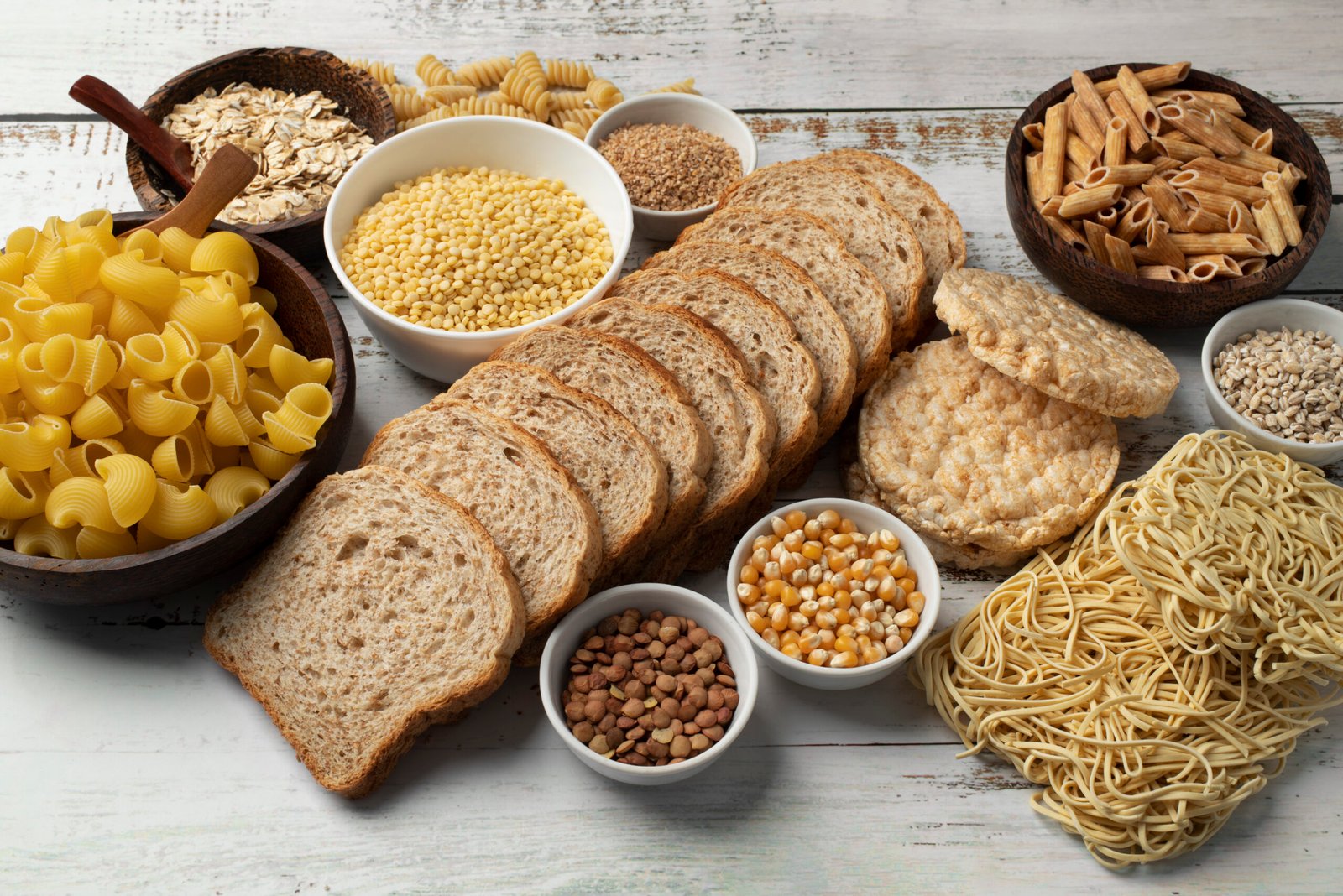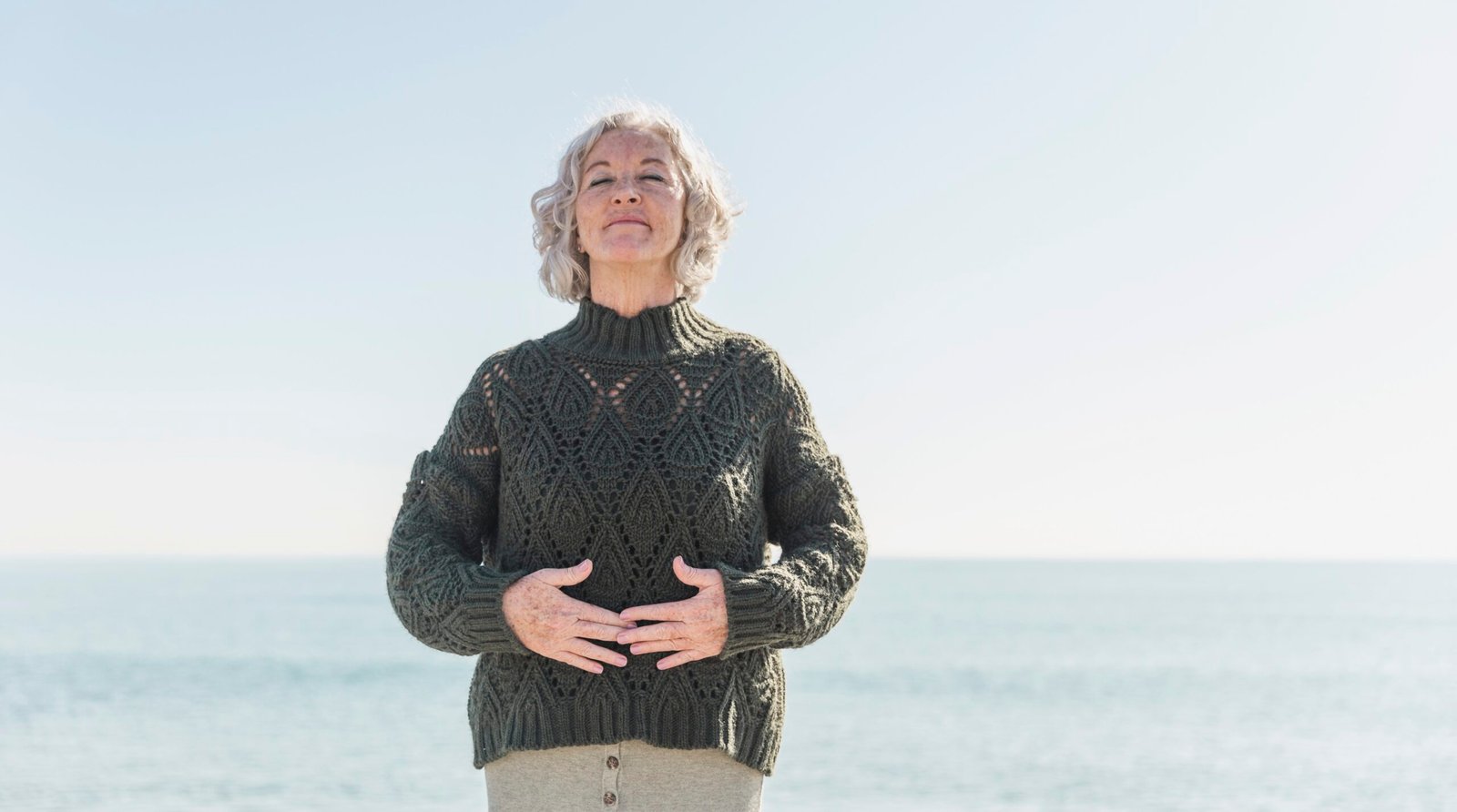
Carbs often get a bad reputation, especially when it comes to weight management during menopause. But the truth is—not all carbs are created equal. For women navigating menopause, choosing the right carbohydrates can actually support your health in powerful ways.
Whole grain foods like brown rice, whole wheat bread, noodles, pasta, crackers, oats, rye, barley, quinoa, corn, amaranth, buckwheat and millets are good carbs that provide essential nutrients, help manage menopause symptoms, and support long-term health.
Here’s why whole grains deserve a place on your plate, especially during menopause:
1. Whole Grains Are Nutrient-Packed—Just What Your Body Needs During Menopause
Menopause brings hormonal changes that can affect metabolism, bone health, and energy levels. Whole grains are grains where all three layers—the bran, germ, and endosperm—remain intact, providing a wide range of nutrients that your body needs now more than ever: energy-providing carbohydrates; fibre, which helps with fullness and digestive regularity; protein, essential for preserving muscle mass, which tends to decline after menopause; and essential nutrients i.e., B vitamins, phosphorus, magnesium, iron, and zinc. These nutrients play vital roles in supporting energy metabolism; reducing tiredness and stress; maintaining bone strength and reducing risk of osteoporosis; and supporting cognitive function (iron, zinc) and red blood cell formation (iron) (1).
2. Whole Grains Support Heart Health – A Top Priority After Menopause
Did you know that after menopause, a woman’s risk of heart disease significantly increases? The drop in estrogen can lead to higher LDL (“bad”) cholesterol, lower HDL (“good”) cholesterol, increased fat around the abdomen, and stiffer arteries (2). That’s why heart protection is crucial during this life stage.
Whole grains can help. Rich in fibre, antioxidants, and plant compounds, they may lower LDL cholesterol; improve blood vessel function; reduce inflammation; and support healthy blood pressure. Research shows that higher whole grain intake is associated with a lower risk of cardiovascular disease—making whole grains a smart food choice for women looking to stay heart-healthy after menopause (2, 3).
3. Whole Grains May Help Manage Blood Pressure
The U.S. National Institutes of Health recommends the DASH (Dietary Approaches to Stop Hypertension) diet to help prevent or manage high blood pressure. The DASH diet emphasizes fruits, vegetables, low-fat dairy, moderate amounts of whole grains, poultry, fish, and nuts, while limiting sodium, fats, red meat, and sweets (4).
4. Whole Grains May Lower the Risk of Type 2 Diabetes
Hormonal changes during menopause can make it harder to maintain stable blood sugar levels. Whole grains, as part of a healthy lifestyle diet, may help reduce the risk of developing Type 2 diabetes by supporting better blood sugar management and improving insulin sensitivity (3, 5).
5. Whole Grains May Offer Cancer Protection
Post-menopause, certain cancer risks can increase. Whole grains contain fibre, antioxidants, and plant-based compounds like polyphenols, lignans, saponins, and alkylresorcinols, which may work together to help lower cancer risk (6).
How Much Should You Eat?
Health experts recommend making at least half your daily grain intake whole grains, aiming for at least 3 servings daily (7).
Examples of one serving of whole grains:
✔ ½ cup cooked brown rice, quinoa, or other whole grain
✔ ½ cup cooked 100% whole grain pasta or noodles
✔ ½ cup cooked hot cereal, such as oatmeal
✔ 1 ounce uncooked whole grain pasta, rice, or other grain
✔ 1 slice 100% whole grain bread
✔ 1 small (1 oz.) 100% whole grain muffin
✔ 1 cup 100% whole grain ready-to-eat cereal
Carbs Can Support Menopause Health—Just Choose the Right Ones
You don’t have to give up carbs during menopause—it’s about choosing wisely. Whole grains deliver nourishment that can help with energy, heart health, blood sugar control, bone strength, and more.
By enjoying at least 3 servings of whole grains daily, you can fuel your body, protect your heart, and support your overall health through menopause and beyond. So, next time you plan your meals, make space for wholesome, fibre-rich whole grain foods—they’re carbs your body will thank you for!
Disclaimer Notice: The information provided on this website, www.veveva-nutrition.com, is for general informational purposes only and is not intended as medical advice, diagnosis, or treatment. It should not replace consultation with a qualified healthcare professional. VeVeva Nutrition Pte Ltd (“VeVeva”), its directors, employees, affiliates, and partners make no representations or warranties regarding the accuracy, completeness, or reliability of the information provided. If you have any health concerns, are taking long-term medication, or are under medical supervision, please consult a doctor or qualified healthcare professional before making any changes to your diet, lifestyle, or treatment. Never disregard professional medical advice or delay seeking it because of something you have read on this website.
References:
- European Commission. (2018, October 25). EU Register On Nutrition And Health Claims. Retrieved from European Commission Health And Nutrition Claims: http://ec.europa.eu/food/safety/labelling_nutrition/claims/register/public/?event=search
- American Heart Association. (2022). Menopause and Heart Disease. Retrieved from: https://www.heart.org/en/health-topics/menopause/menopause-and-heart-disease
- Satya S. Jonnalagadda, 4. L. (2011). Putting the Whole Grain Puzzle Together: Health Benefits Associated with Whole Grains—Summary of American Society for Nutrition 2010 Satellite Symposium. The Journal of Nutrition, 1011S–1022S. https://pubmed.ncbi.nlm.nih.gov/21451131/
- US Department of Health andHuman Services . (2003, May). Your Guide To Lowering Blood pressure. Retrieved from National Institutes of Health – National Heart Lung andBlood Institutes: https://www.nhlbi.nih.gov/files/docs/public/heart/hbp_low.pdf
- Joint WHO/FAO Expert Consultation. (2003). Diet, Nutrition andPrevention of Chronic Diseases – Technical Report Series 916. Geneva: Joint WHO/FAO Expert Consultation. https://www.who.int/publications/i/item/924120916X
- American Institute For Cancer Research . (2019). Whole Grains. Retrieved from AICR’s Foods That Fight Cancer: https://www.aicr.org/foods-that-fight-cancer/whole-grains.html
- Oldways Whole Grains Council. (n.d.). Whole Grains 101. How Much Is Enough? Retrieved from Oldways Whole Grains Council : https://wholegrainscouncil.org/whole-grains-101/how-much-enough




